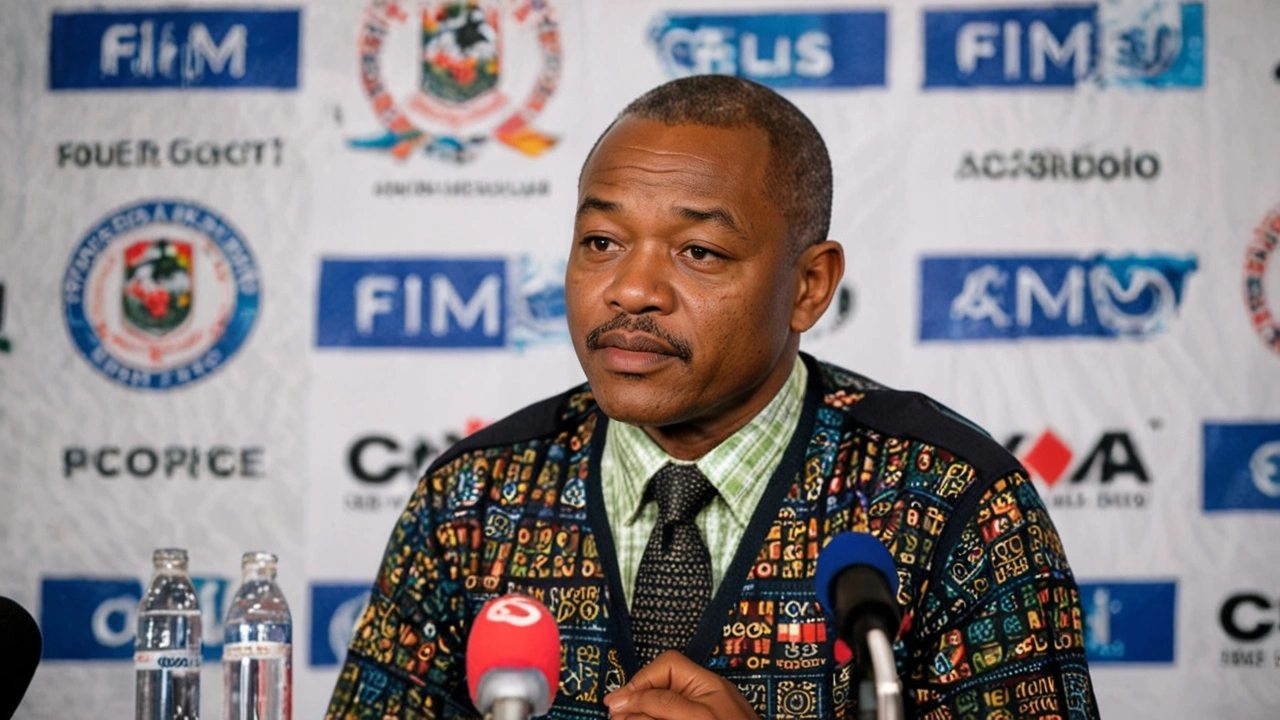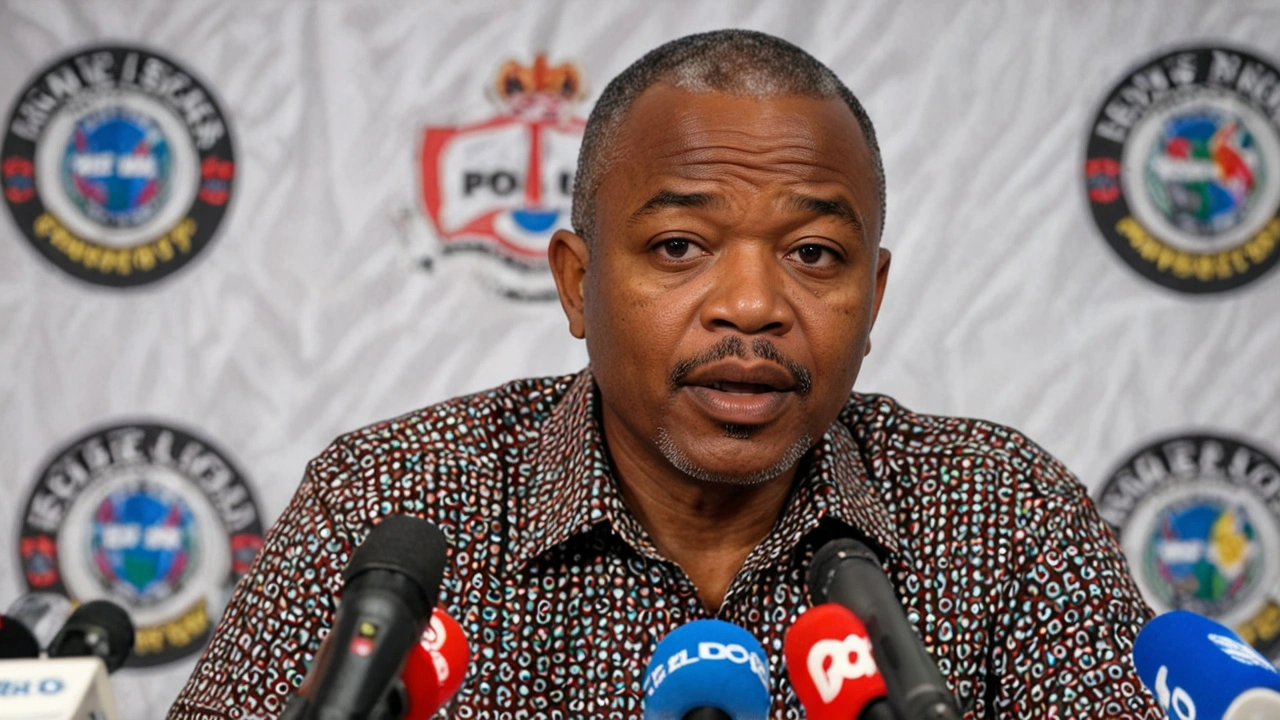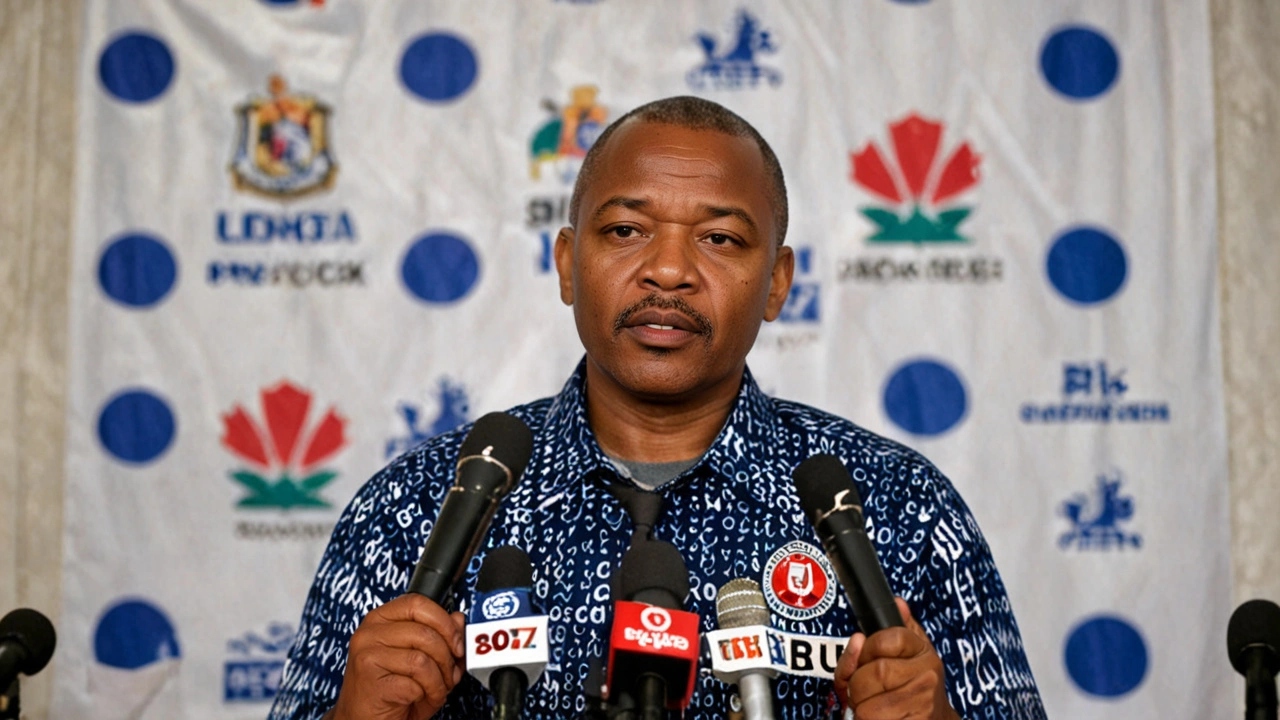Introduction
Rising crime rates have become an alarming issue in South Africa, prompting swift and decisive action from Police Minister Senzo Mchunu. During a recent briefing, Mchunu expressed a clear and resolute commitment to tackling the diverse and complex challenges facing law enforcement in the country. His vision for a safer South Africa hinges on a culture of intolerance towards criminality, professionalizing the police force, and uprooting corruption from within.
The State of Crime in South Africa
Minister Mchunu's briefing painted a stark picture of the current crime landscape in South Africa. Contact crimes, which include murder, rape, hijackings, and kidnappings, have become pressing concerns, with pervasive violence and fear eroding the sense of safety and security among the public. His call for action is underscored by the disturbing statistics surrounding these crimes, especially the heinous acts committed against women and children. The minister identified the killing of women and children as a top priority that demands “intensive action” to ensure justice and protection for the vulnerable.
Addressing Gang Violence in the Western Cape
Among the myriad of challenges, gang violence in the Western Cape stands out as an issue requiring urgent and tailored interventions. Minister Mchunu highlighted the ramifications of gang activities, which go beyond the immediate violence to engender a climate of fear and instability in communities. He pointed out that breaking the cycle of gang violence will not only involve aggressive policing but also community engagement and comprehensive social programs.
Tackling Construction Mafias
Another critical area that has come under the spotlight is the rise of construction mafias. These groups have increasingly infiltrated the booming construction sector, utilizing intimidation and violence to control projects and extort money. Minister Mchunu emphasized that dismantling these mafias would require coordination among law enforcement agencies, construction firms, and local governments to ensure safety and honesty in this vital economic sector.

Professionalizing the Police Service
Central to Mchunu’s strategy is the professionalization of the police service. He believes that instilling positive ethical values and eliminating corruption within the force are imperative for restoring public trust and efficacy in law enforcement. Mchunu has been actively engaging with executive management, provincial commissioners, and divisional heads to identify both the challenges and opportunities within the police service. His goal is to build a formidable and ethical police force capable of responding adeptly to the nation’s crime challenges.
Commitment to Ethical Policing
Minister Mchunu's message of professionalization is fundamentally about fostering an ethical culture within the police ranks. He argues that corruption not only hampers crime-fighting efforts but also undermines the legitimacy of law enforcement in the eyes of the public. By rooting out unethical practices and fostering integrity, Mchunu aims to empower police officers to act as true protectors of the community, ensuring justice and fairness in their operations.
Strengthening Crime Intelligence
An effective police force relies heavily on robust crime intelligence capabilities. Mchunu acknowledged that improving crime intelligence is essential for preempting criminal activities and efficiently addressing ongoing incidents. Strengthening these capabilities means better training for intelligence officers, investing in advanced technologies, and ensuring that intelligence-sharing mechanisms are both swift and accurate.
Technological Investments
Investing in technology is key to modernizing South Africa’s police force. Mchunu is advocating for the integration of cutting-edge tools and systems that can aid in surveillance, data analysis, and crime prediction. Such investments will arm the police with the necessary resources to stay one step ahead of criminals and respond more rapidly to incidents as they unfold.

Community Engagement and Collaboration
Minister Mchunu believes that tackling crime is not solely the responsibility of the police, but a collective effort that involves the entire community. He has called for greater community engagement and collaboration between law enforcement and the public. Building trust and fostering cooperation with community members can lead to more effective crime prevention and intervention strategies. Communities that feel heard and supported are more likely to assist the police in maintaining order and reporting criminal activities.
Public Initiatives and Programs
Various public initiatives and programs will be rolled out to ensure a sustained effort in crime prevention. These initiatives may range from neighborhood watch groups to educational campaigns on issues like domestic violence and substance abuse. Minister Mchunu’s approach underscores the importance of a holistic strategy that addresses the root causes of crime while also strengthening community resilience.
Enhancing Police Morale and Training
Police morale and training are critical to effective law enforcement. Minister Mchunu has emphasized the need for ongoing professional development and support for police officers. By ensuring that they are well-trained and motivated, he aims to cultivate a proactive and efficient police force. Enhanced training programs will focus not only on technical skills but also on ethical decision-making and community-oriented policing practices.
Conclusion
The challenges facing South Africa’s police force are substantial, but Minister Senzo Mchunu’s comprehensive approach provides a hopeful blueprint for the future. His commitment to decisive action, professionalization, and community engagement is a robust framework for addressing the nation’s crime woes. By dealing effectively with gang violence, construction mafias, and entrenched corruption, Mchunu aims to create a safer environment for all South Africans. As the police force evolves under his guidance, the hope is that public trust and safety will be significantly restored, paving the way for a more secure and prosperous society.


Comments
MONA RAMIDI
Honestly, the whole “unwavering action” spiel feels like a tragic theater-full of grand gestures but empty of real change. The Minister’s vows sound like desperate cries for attention while crime keeps gnawing at our streets. It’s infuriating to watch this drama unfold, especially when victims are still left to suffer.
July 17, 2024 at 03:06
grace riehman
i think it’s great that the minister is trying to bring the community together, even if the plans sound a bit shaky. we all need to support each other, especially in places where fear is soo real. definetly hope these ideas turn into real help soon.
July 24, 2024 at 22:03
Vinay Upadhyay
Wow, another government “strategy” that promises the moon while delivering the same tired buzzwords. Professionalising the police? Sure, if they can first stop the internal corruption that makes everything else impossible. And “investment in technology” – because a fancy gadget will magically stop gang violence. Let’s not pretend this isn’t just PR fluff.
August 1, 2024 at 17:00
Eve Alice Malik
i get the sarcasm, but honestly it’s kinda hard to stay chill when the stats are that scary. maybe some of those tech toys can actually help if they’re used right, ya know?
August 9, 2024 at 11:57
Debbie Billingsley
The Minister’s commitment is exactly what our nation needs; we must back him wholeheartedly. Crime cannot thrive when the state stands firm and enforces law without hesitation. It is a patriotic duty to support these decisive measures.
August 17, 2024 at 06:54
Patrick Van den Berghe
the plan sounds good but we need results not just words
August 25, 2024 at 01:50
Josephine Gardiner
While the sentiment expressed is succinct, it is imperative to recognize that the outlined strategies, when executed with diligence, may indeed yield substantive outcomes. Nonetheless, ongoing assessment will be essential to gauge efficacy.
September 1, 2024 at 20:47
Jordan Fields
The new intelligence units must be fully funded.
September 9, 2024 at 15:44
Divyaa Patel
The recent declaration by Minister Mchunu reads like a manifesto for a new era of policing in South Africa.
Yet, behind the lofty rhetoric lies a complex tapestry of systemic challenges that cannot be untangled with slogans alone.
First, the endemic corruption within the force acts as a cancer that erodes public trust faster than any crime statistic can.
When officers are viewed as extensions of illicit networks, the community’s willingness to cooperate dwindles into silence.
Second, the socioeconomic roots of gang violence demand more than just patrols; they demand substantive investment in education and job creation.
Without addressing the lure of short‑term gains for disenfranchised youth, any crackdown will merely be a temporary bandage.
Third, the construction mafias highlighted in the briefing illustrate how crime infiltrates even the most promising sectors of the economy.
Their extortion tactics not only inflate costs but also deter foreign investment, further stalling growth.
The Minister’s emphasis on technology is commendable, yet technology without ethical oversight can become another tool of oppression.
Surveillance systems, when misused, risk violating the very civil liberties they aim to protect.
Therefore, a robust framework for accountability must accompany any technological rollout.
Community engagement, too, cannot be a token phrase; it must evolve into genuine power‑sharing with local leaders.
When residents feel heard, they become allies rather than obstacles in crime prevention.
Ultimately, the success of this ambitious plan hinges on the synchronized effort of multiple stakeholders, each holding a piece of the puzzle.
Only through relentless commitment, transparent governance, and shared responsibility can South Africa hope to reverse its crime surge and restore a sense of safety for all.
September 17, 2024 at 10:41
Larry Keaton
i love how you broke it down – real talk about roots and all that. looks like we need more than just fancy gadgets, ya feel?
September 25, 2024 at 05:38
Liliana Carranza
Such an inspiring vision! If we all rally behind these ideas, the future can truly shine with safety and hope.
October 3, 2024 at 00:35
Jeff Byrd
Sure, let’s just sprinkle some tech and call it a day.
October 10, 2024 at 19:32
Joel Watson
While the succinct dismissal captures a certain cynicism, one must also consider the nuanced potential of targeted technological interventions within a broader strategic framework.
October 18, 2024 at 14:29
Chirag P
I appreciate the comprehensive overview and look forward to seeing measurable progress as these initiatives unfold.
October 26, 2024 at 09:26
RUBEN INGA NUÑEZ
The outlined steps indeed hold promise, provided that implementation remains transparent and accountable to the communities it serves.
November 3, 2024 at 03:23
Michelle Warren
this is all just a big hype train i dont think its gonna work bc its all talk no act lol
November 10, 2024 at 22:19
Christopher Boles
Optimism can be a powerful catalyst; even small steps forward can eventually lead to meaningful change.
November 18, 2024 at 17:16
Crystal Novotny
maybe all this focus on policing distracts from the real issue of social decay
November 26, 2024 at 12:13
Reagan Traphagen
It's understandable to suspect ulterior motives, yet evidence shows that without robust law enforcement, crime rates would only accelerate, confirming the necessity of these measures.
December 4, 2024 at 07:10
mark sweeney
i think we're just overthinking it – sometimes simple solutions work better than endless analysis lol
December 12, 2024 at 02:06